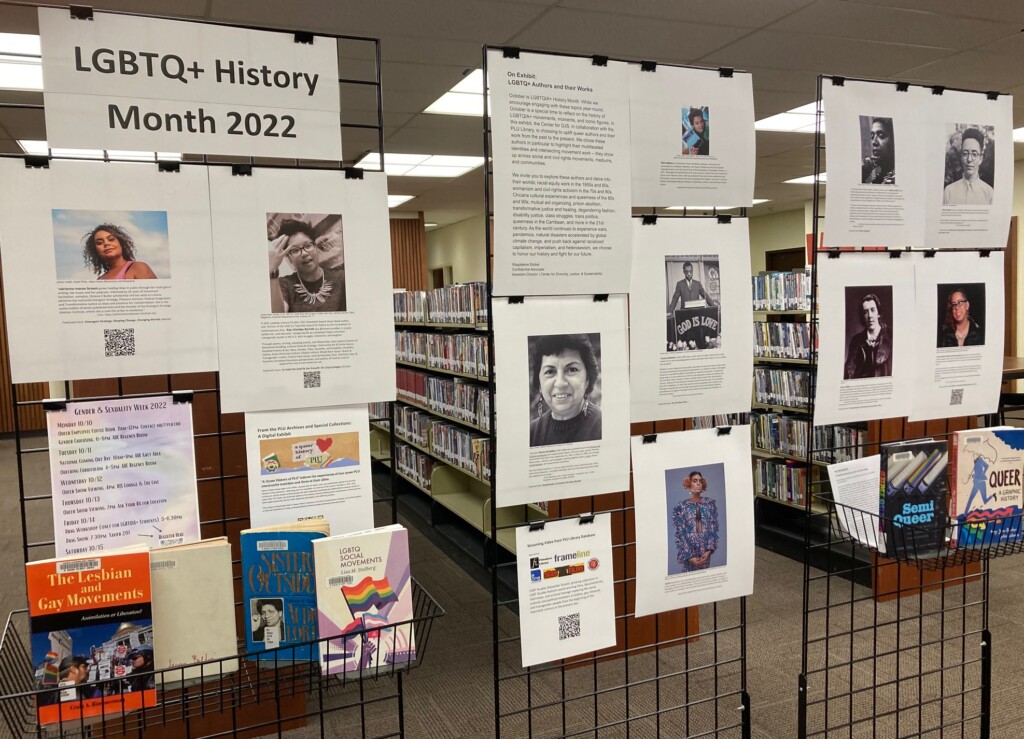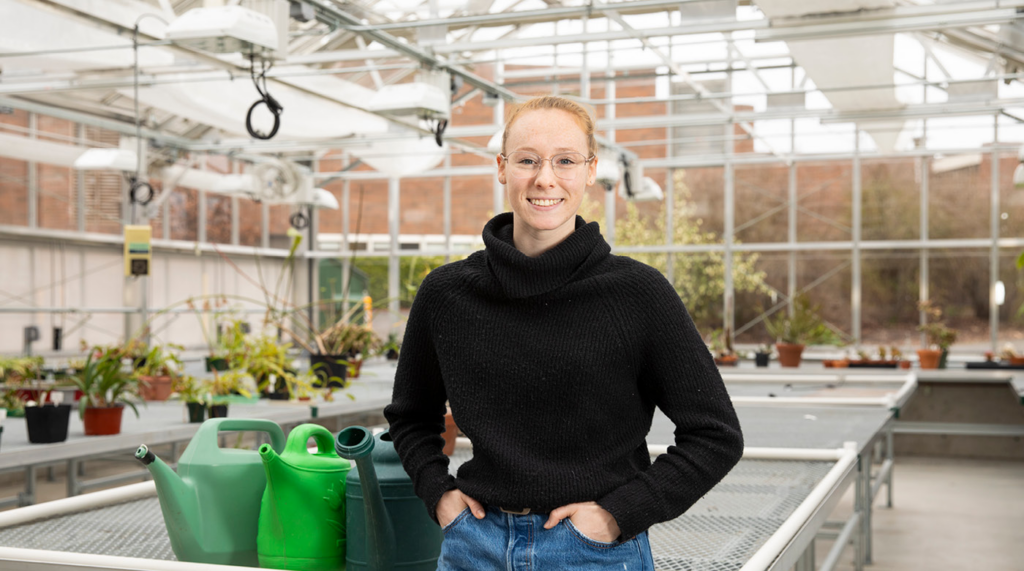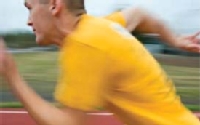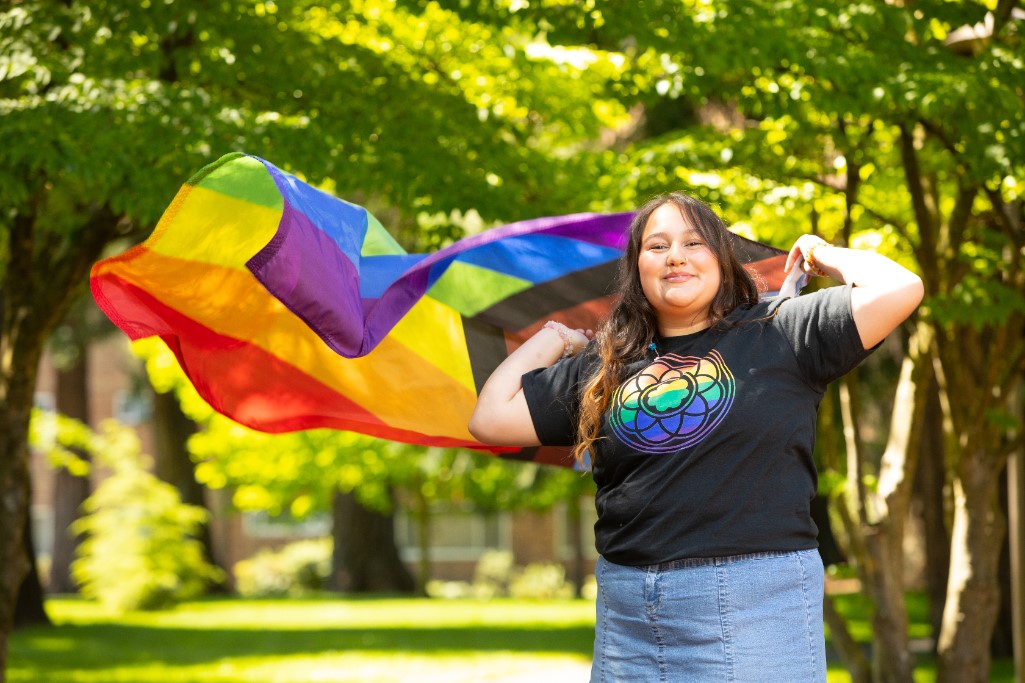Page 210 • (12,507 results in 0.033 seconds)
-
help of his scribes, he made a book, which contained the history and customs of the Bamum people. He also made a map of his country, a religious book, and a book on local medicine. Around 1912, he established the first of 47 schools to teach the Bamum how to read and write his language. In 1918, he converted to Islam and it is now estimated that more than half of the Bamum people are Muslim. The Bamum who are not Muslim practice ancestor worship and believe in a supreme god who creates children
-

On Exhibit: LGBTQ+ Authors and their Works Posted by: Holly Senn / October 5, 2022 October 5, 2022 October is LGBTQIA+ History Month. While we encourage engaging with these topics year-round, October is a special time to reflect on the history of LGBTQIA+ movements, moments, and iconic figures. In this exhibit, the Center for DJS, in collaboration with the PLU Library, is choosing to uplift queer authors and their work from the past to the present. We chose these authors in particular to
-
Welcome Kevin O’Brien, dean of humanities, discusses the decision to host The Saint John’s Bible at Pacific Lutheran University. O’Brien explores the ways in which featuring the Bible in the university’s magazine fits with the inclusive mission at PLU. Read More The Saint John's Bible Kari Plog, senior editor of ResoLute , describes her personal journey coming to terms with the ‘L’ in PLU and how The Saint John’s Bible mirrors the university’s mission. Her first-person account of interacting with the
-
collective practices of resistance and flourishing. The field of Critical Race Studies began with 1960s movements for social change, when student activists of color organized to demand new curricula in higher education that centered Black, Chicanx and Asian culture and history. CRS understands the historical formation of racial groups as not naturally determined, nor politically or morally neutral. Societies assign meaning to different racial categories; these meanings shift over time and across space
-

health care would be the ultimate goal, but then a couple of classes focused on plant development and global agriculture grew a new passion“I have a family history of agriculture, my grandfather used to have apple orchards in Eastern Washington,” she said, explaining why her PLU biology classes resonated with her. “From that point forward, I began to pursue plant biology, as I had both personal and academic passion in the subject.” On her way to her degree, Davis completed a capstone project on plant
-

Growing into her own: how Sarah Davis ’23 discovered her passion for plant biology Posted by: shortea / May 11, 2023 May 11, 2023 By Lisa PattersonPLU Marketing & Communications Guest Writer Sarah Davis, a biology major and Hispanic studies minor, began her PLU journey with the idea that medicine and health care would be the ultimate goal, but then a couple of classes focused on plant development and global agriculture grew a new passion. “I have a family history of agriculture, my grandfather
-
Listen Pacific Lutheran University Listen Play Video Home Forums Podcasts Videos Join Resources About Participate in a forum The Listen Forums are an extension of PLU’s Listen Campaign. The Listen Forums are campus wide conversations that engage community members in learning and dialogue about implicit biases, personal and community awareness, and understanding how behaviors influence workspaces, classrooms, and personal and professional relationships. The forums are designed as a space for
-

. But more on Iraq later. Bollen, running only the third 400-meter hurdles race in his life, surprised most everyone by winning the conference title with a time of 56.13. In doing so, he lowered his personal best by more than two seconds. It was only Bollen’s third time running the event, including the first time when he tripped over a hurdle, got back up, and established a conference meet–qualifying time. The hurdles title capped an outstanding meet for Bollen, who placed fifth in the 400-meter
-

of power. This program gives students the important tools, resources, and language needed for personal empowerment and civic engagement. Through study and a required gender, sexuality & race studies internship or community practicum, you’ll develop skills that will prepare you to pursue social justice, solve problems in diverse communities, work effectively across differences and lead from an equity mindset, some of the most important skills and abilities desired by employers. GSRS students
-
. Basic principles and strategies of treatment for common sexual dysfunctions will be considered. The nature of sexual health, a brief review of the anatomy and physiology of the sexual response cycle and the biological and psychological determinants of sexual functioning will be considered. Students will learn to conduct a sexual history, considering the impact of larger contextual issues. Models of couples therapy will also be taught with attention to addressing sexual issues as another form of
Do you have any feedback for us? If so, feel free to use our Feedback Form.


